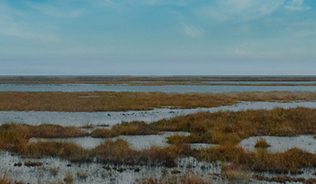Following the launch of the IES’ five principles for a science-led Green Recovery at the start of June, we have been continuing to look at the big challenges and opportunities to build back better, and what we can learn from a broad and interdisciplinary approach as we scrutinise emerging plans for recovery.
The response to COVID has also been developing and the number of policy approaches which need careful scrutiny have also magnified. We are taking the opportunity to keep our members informed about these challenges, and the ways that the Government and other organisations are trying to address them.
What are the big challenges and opportunities for the environment?
If we are going to ensure that the local, national, and global recovery creates a future which is sustainable, fair, and resilient, the environmental science sector will need to be proactive in taking a leading role in scrutiny of the policy instruments of that recovery. In order to do so, we will need to draw upon all the disciplines we represent, as well as collaborating wherever possible to identify risks, opportunities, and barriers to progress.
The starting point for a green recovery must be non-regression on environmental practices and regulations, but this cannot be all that it achieves if the goal is to “build back better”. Careful attention will need to be given to avoid the long-term loosening or removal of environmental regulations, particularly in the period of economic recovery when the Government is most likely to seek to promote business activity. The ENDS report outlined a series of green rules which have been relaxed (paywall) due to the pandemic, though it remains to be seen if the recovery period will be seen as a reason to weaken regulations further.
Going beyond non-regression, one of the most widely discussed opportunities around the COVID recovery has been the possibility of embedding net zero and decarbonisation into the instruments of that recovery, or even making them more permanent fixtures of the UK economy. As we search for ways to embed these principles into economic decision-making, the IES CEO has signed a letter to the PM urging him to use the SDGs as a framework to achieve exactly this. With a broad focus, specific goals, and a view that looks across the evidence at all aspects of creating a fair, resilient, and sustainable society, the SDGs may be a fundamental part of the UK’s response to COVID.
This is especially important, given the role of long-term decarbonisation of the economy which was recently outlined by Deiter Helm in the Environmental and Resource Economics journal in May1. Helm wrote about COVID and the environment, observing the simultaneous drop in both GDP and emissions, and remarking that “the evidence from the pandemic is that it is not the case that decoupling has occurred at the global level, or even at the European level.” Helm’s verdict is foreboding for ambitions to decouple growth from emissions.
Since the outbreak of the pandemic, some businesses have also taken early steps to improve their own environmental impact. For example, Princes has made a commitment to zero waste exports, while SSE is investing £7billion in low-carbon to support a green recovery. However, until these actions go beyond solitary examples where resolve for change exists, they will not be enough to create the long term basis of business sustainability needed to ensure lasting progress on resource waste, pollution, and climate change. Optimists should look at these initial actions as a blueprint for wider corporate change and as discussion points for business leaders in conversation with the Government, while pessimists might prefer to take them as a framework for future regulation to be based upon.
Another challenge which will need to be addressed in the recovery period will be the manner in which environmental targets are delivered and regulated. When it comes to ecology, natural land management techniques, and natural carbon sequestration, a significant aspect of delivery has fallen on the back of civil society, which has faced serious financial challenges (paywall) because of the global pandemic.
While civil society organisations struggle with funding, attempts by business or the public sector to step in will be heavily limited by their capacity, particularly in a time when they will be faced by so many competing priorities. There needs to be careful attention paid in the design of programmes for ‘building back better’, ensuring that relevant organisations, regulators, and local authorities have the resources and capacity needed to deliver on that green recovery.
As we continue to scrutinise the ever-developing response to COVID-19, as well as the Government’s plans for recovery, it will be important to bear these challenges in mind. Unless the response adequately addresses the risk of relaxing regulations, the behaviour of businesses, and the diminished delivery capacity of civil society and regulators, any gains which might be made for the environment may be short-lived.
What are the benefits of being broad and interdisciplinary during the recovery?
Our second principle for a green recovery was that we need to be broad and interdisciplinary as we continue to identify these risks and opportunities. We should draw on expertise from across the sector and also take lessons from outside of our immediate knowledge bubble as we critique and scrutinise policy solutions.
In light of the challenges we are likely to face and the monumental effort which will be required in order to overcome them, the first benefit of interdisciplinary thinking is the insight it will give us into capacity (paywall). As we consider not just which policy instruments will be necessary for a sustainable recovery, but also how and where they should be implemented, it will be essential to know which sectors and organisations have the capacity to deliver on our sustainability objectives.
The Government has been highly attentive to concerns that businesses may have limited ability to deliver on the wider goals of the recovery process, with the prospect of consultation with business leaders at the heart of Alok Sharma’s ‘recovery roundtables’. This same level of attention to capacity will need to be exercised across civil society and Local Government, and especially so when it comes to the highly technical areas of conservation, air quality, land management and other areas of environmental protection where complex systems are involved. This will need to be the first question we ask as we bring different disciplines into the recovery process: what needs to be done and how will we need to improve capacity to make it happen?
Another value of interdisciplinary thinking is that it helps to identify synergies which may otherwise have gone unnoticed. As we set out plans for recovery, it will be especially important to look for ways we can align those plans with areas where environmental progress is achievable.
A clear area of synergy is the scope for green investments. One of the most significant challenges of environmental progress has been that green projects, once identified, have struggled to get the funding they need from tightly-managed budgets, while major investments in sustainable sectors have been too costly to afford. Now, we are already expecting a big investment in projects and job creation, so it will be the ideal time to find opportunities to put that capital towards a green and just transition.
The Government is clearly considering this prospect carefully with its ‘recovery roundtable’ on green recovery asking how “to align investment in the UK and globally with net zero and to protect natural capital”. However, where roundtables were being asked to provide feedback on ‘regulatory barriers’ to growth and innovation, the Government will need to remember that good regulation is often a driver for innovation, and not a roadblock.
In order to promote innovation and investment, particularly in the environmental sector, regulation creates clear and fair terms of competition for businesses, and drives innovative work for mutual economic and environmental benefit. There are strong examples of the innovative value added by interventions including the UK’s landfill tax and research into hard-to-treat materials.
The IES has also already expressed the need to be forward-thinking as we approach the use of land in the aftermath of COVID, integrating an environmental understanding into any attempts to increase future food security. This will require a more interdisciplinary, systems-focused approach to the management and use of land. Correctly orienting the future of British land will be a task which not only benefits from the inclusion of a variety of disciplines from across the environmental sciences, it will necessitate the inclusion of those opinions.
This is why it is so important that we take a broad and interdisciplinary approach to identifying risks and opportunities: only by doing so can we determine what is realistically achievable, where there are chances to unite recovery with progress, and how to create a system which is fair, resilient, and sustainable.
Scrutinising the response so far: are current plans considerate, deliberate, and evidence-based?
With the EU’s recovery strategy coming under scrutiny from environmental groups, the first analysis of whether green recovery plans will actually lead to sustainable outcomes has begun. The IES has already prepared for the upcoming scrutiny process, and as the details of strategies and proposals begin to come to light, we’ll be using our five principles to ask if they are: Ambitious, Broad, Considerate, Deliberate, and Evidence-based.
The UK Government has begun to develop its own approach to creating a sustainable recovery, and the decision to draw on expertise from green groups in the recovery roundtables should be commended for its commitment to drawing on evidence and expertise. However, this cannot be the end of the Government’s interaction with evidence, and the way that it is used will need to account for a considerate implementation which is deliberate in its delivery. As the sector reflects on the progress (paywall) made towards the fulfilment of the Government’s 25 year plan, the green recovery cannot become another area of environmental policy which is heavy on ambition but slow on delivery.
Outside of Government, a number of organisations have begun showing their own initiative when it comes to what should form part of global recovery packages. The Smith School of Enterprise and the Environment in Oxford put out a list of policy recommendations to help achieve a net zero recovery, while the IPPR’s Environmental Justice Commission has laid out criteria to aid in the prioritisation of projects for a green recovery.
Further proposals for a green recovery have come from the International Energy Agency, which has put forward a sustainable recovery plan, Bloomberg’s green stimulus proposals, and in a letter to Chancellor Rishi Sunak from environmental organisations calling for nature recovery projects to be put at the heart of the recovery. In each case, the Government will have to take a systematic approach to scrutinising the evidence behind the proposals and determining where they can fit into the overall strategy for the UK’s recovery from COVID, with careful consideration of the scales and delivery mechanisms which are most appropriate.
Meanwhile, the IES has shown support for using the Sustainable Development Goals as a framework for a sustainable recovery. Drawing on the SDGs will allow us to consider the broader factors in and consequences of the decisions made around the recovery process, and through its goals, it has the ability to provide specific points of scrutiny to ensure that each proposal is targeted to the most appropriate level.
These handful of proposals are only the first of many, and we are yet to see the full scope of how the Government is planning to make the UK’s recovery from COVID sustainable. There is certainly a long road ahead for scrutiny, but the IES will continue to monitor proposals and draw on the expertise of those with a voice which needs to be heard. By giving voice to scientists, science, and the natural world, we can work towards a recovery strategy which is ambitious, broad, considerate, deliberate, and evidence-based.
1. Helm, D. The Environmental Impacts of the Coronavirus. Environ Resource Econ (2020).





